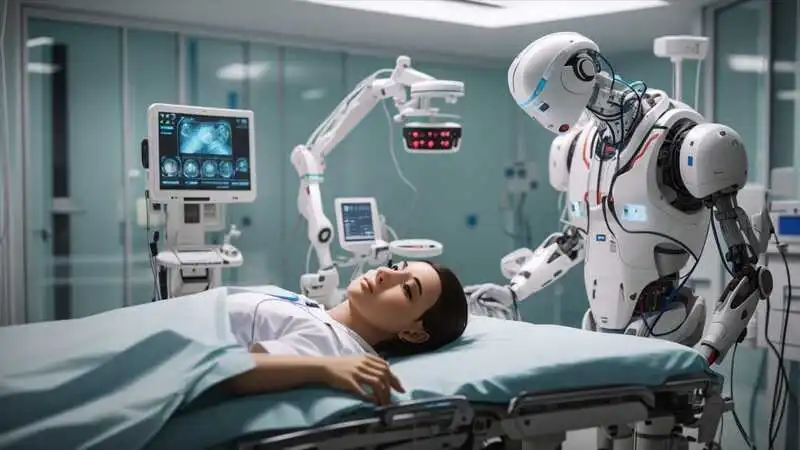The healthcare industry is in the midst of a technological revolution. From artificial intelligence to wearable devices, innovative technologies are transforming the way we approach patient care, disease management, and medical research. As we look towards the future, it’s clear that these advancements will continue to shape the landscape of medicine. Offering new possibilities for improved patient outcomes and more efficient healthcare delivery.
Emerging Technologies in Diagnostic Medicine
One of the most significant areas where technology is making an impact is in diagnostic medicine. Artificial intelligence (AI) and machine learning algorithms are being developed to analyze medical images, such as X-rays and MRIs, with unprecedented accuracy. By training these systems on vast datasets of medical records and images, researchers are enabling them to detect subtle patterns and anomalies that may be missed by the human eye. This technology has the potential to greatly improve the speed and precision of disease detection, leading to earlier interventions and better patient outcomes.
Moreover, the rise of wearable technology is allowing for continuous health monitoring outside of traditional healthcare settings. Smartwatches and other wearable devices can now track a wide range of health metrics, including heart rate, sleep patterns, and physical activity levels. This real-time data collection enables healthcare providers to gain a more comprehensive understanding of their patient’s health status, facilitating proactive care and early detection of potential health issues. Please visit to learn about the Future of Medicine.
Innovations in Treatment and Patient Care
Alongside advancements in diagnostics, cutting-edge technologies are also revolutionizing treatment approaches and patient care. Personalized medicine, tailors treatment plans to an individual’s unique genetic profile. That is becoming increasingly viable thanks to breakthroughs in genetic testing and analysis. By identifying specific genetic variations that influence disease risk and drug response, healthcare providers can develop more targeted and effective treatment strategies.
Telemedicine and virtual care platforms are another area of innovation that is transforming the delivery of healthcare services. These technologies enable remote consultations and monitoring, expanding access to care for patients in underserved or remote areas. Telemedicine also offers convenience and flexibility for patients who may have difficulty attending in-person appointments due to mobility issues or time constraints. The COVID-19 pandemic has further accelerated the adoption of telemedicine, highlighting its potential to provide continuity of care during public health crises.
Implications for the Future of Healthcare
The integration of cutting-edge technologies into healthcare practice holds immense promise for improving patient outcomes and reducing healthcare costs. By enabling earlier disease detection, more targeted treatments, and remote monitoring, these technologies have the potential to catch health problems before they escalate, reducing the need for costly interventions and hospitalizations. Furthermore, the insights gleaned from the vast amounts of data collected through wearable devices and electronic medical record (EMR) software can inform public health initiatives and drive evidence-based decision-making.
However, the rapid advancement of medical technology also raises important ethical considerations and challenges. To ensure the responsible use of patient information. We must carefully address issues of data privacy and security. Additionally, there are concerns about the potential for algorithmic bias in AI-driven diagnostic tools. Which could perpetuate or exacerbate health disparities if not properly addressed. The medical community must engage in ongoing dialogue and collaborate to navigate these challenges, ensuring that the benefits of technological innovation are distributed equitably.
Conclusion
A wave of cutting-edge technologies is shaping the future of medicine, promising to revolutionize healthcare as we know it. From AI-powered diagnostics to personalized treatments and virtual care. These innovations are opening up new frontiers in patient care and medical research. As we embrace these advancements, it is important to approach them with a balance of excitement and thoughtfulness, recognizing both their transformative potential and the need for responsible implementation.
